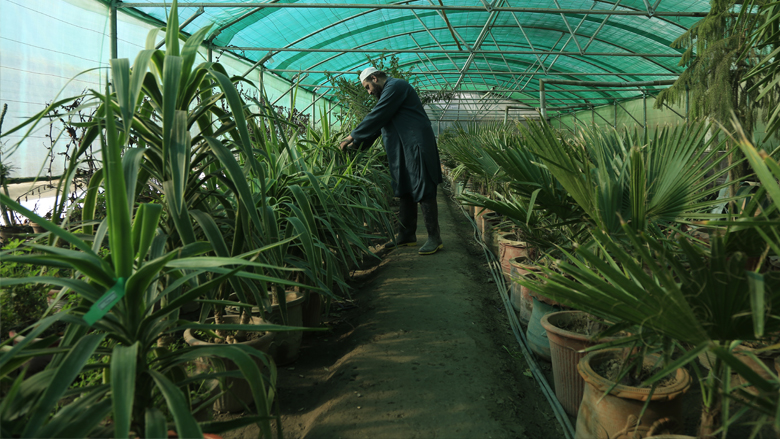DISTRICT 3, Kabul City— It is just past 8 am and members of the Farmers’ Call Center (FCC) team are already busy attending to callers, searching their computers as they respond to questions.
The call center, on the west side of Kabul city, is equipped with computers linked to a database on agricultural issues to support the 15 On-Farm Water Management Project (OFWMP) experts who operate the center. The experts field about 250–300 calls a day, covering a wide range of topics. “About 40–50 percent of queries are about crop disease and the rest covers irrigation, livestock disease, planting, and fertilizing,” says Raza, one of the experts.
The FCC team is made up of specialists in a wide range of fields, including agriculture, agronomy, animal science, and irrigation. Each team member has passed theoretical and practical exams on farming and livestock and received training on how to use the online database to better assist callers.
“We want all farmers to call ‘150’ for issues that they have with their land and livestock,” says Sahebzada at the Ministry of Agriculture, Irrigation and Livestock (MAIL).
The FCC was created in response to the deteriorating security situation in Afghanistan, which is preventing extension workers from making field trips to address farming problems. “The security situation is not good,” says Sahebzada. “Before the setup of the Farmers’ Call Center, we sent extension workers to meet the farmers in person and teach them new farming methods. Now that the system to reach out and advise farmers in person is no longer feasible, OFWMP together with the General Directorate of Extension and Agriculture Development initiated this call center to fill the gap.”
Call center lines are open daily during government working hours from Saturday to Thursday. There are, however, plans to expand the call center hours, says Sahebzada, to better accommodate early-morning and late-night calls when farmers are most likely to encounter an issue at the start or end of their work day.
The call center has helped expand OFWMP’s reach and efficacy by providing an opportunity for farmers from all over the country to receive expert advice from qualified agricultural professionals. The FCC supports OFWMP in its work to boost the efficiency of water use, increase agricultural production, and improve agricultural practices.
. According to Sahebzada, this information can help OFWMP track the outbreak of diseases and the spread of infestations as well as identify key areas of improvement to better target OFWMP projects in specific areas.
OFWMP supports on-farm water management investments in five regions—central, eastern, southwest, northeast, and northern—covering a total of 10,000 hectares. It is implemented by MAIL and supported by the Afghanistan Reconstruction Trust Fund (ARTF), administered by the World Bank on behalf of 34 donors.


